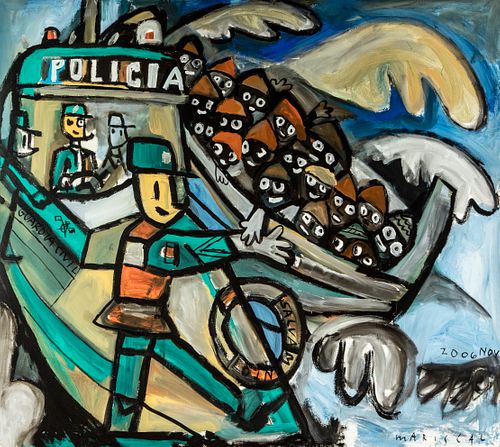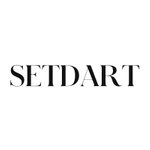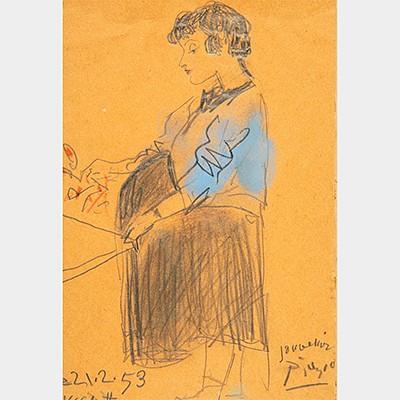JAVIER MARISCAL (Almazora, Castellón, 1950). Untitled, November 2006. Oil on canvas. Signed and dated in the lower right corner.
Lot 59
About Seller
Setdart Auction House
Carrer Aragó 346
Barcelona
Spain
Setdart Subastas was born in 2004 and is currently the first online art auction in Spain with solidity, prestige and reliability guaranteed by our more than 60,000 users. Setdart has a young, dynamic and enterprising team ready to successfully manage the purchase and sale of art works through custom...Read more
Estimate:
EUR€20,000 - EUR€22,000
$20,833.33 - $22,916.67
Absentee vs Live bid
Two ways to bid:
- Leave a max absentee bid and the platform will bid on your behalf up to your maximum bid during the live auction.
- Bid live during the auction and your bids will be submitted real-time to the auctioneer.
Bid Increments
| Price | Bid Increment |
|---|---|
| EUR€0 | EUR€10 |
| EUR€200 | EUR€25 |
| EUR€500 | EUR€50 |
| EUR€1,000 | EUR€100 |
| EUR€3,000 | EUR€200 |
| EUR€5,000 | EUR€500 |
| EUR€10,000 | EUR€1,000 |
| EUR€20,000 | EUR€2,000 |
| EUR€50,000 | EUR€5,000 |
About Auction
By Setdart Auction House
Sep 20, 2021
Set Reminder
2021-09-20 08:00:00
2021-09-20 08:00:00
America/New_York
Bidsquare
Bidsquare : CONTEMPORARY ART
https://www.bidsquare.com/auctions/setdart-auction-house/contemporary-art-7482
Setdart Auction House sofia@setdart.com
Setdart Auction House sofia@setdart.com
- Lot Description
JAVIER MARISCAL (Almazora, Castellón, 1950). Untitled, November 2006. Oil on canvas. Signed and dated in the lower right corner. Measurements: 160 x 180 cm. Claim and social denunciation go hand in hand in the present canvas. Created in 2006, when illegal immigration was already a social reality in Spain, Javier Mariscal shows us the rescue of a group of African immigrants by the coastal police. Conceived as a vignette and with a naïf aesthetic typical of the Valencian cartoonist, it is a work that laments the situation that, fifteen years later, in the middle of 2021, has still not found a dignified and inclusive solution, a situation that has even increased with the passing of the years. On more than one occasion, Mariscal has shown his support for diversity. As he has stated in different media, "Tradition and immigration make us much better". As we can see in the work we are dealing with here, his link with art is social and participatory: for the illustrator, the canvas becomes a tool with which to make the world a better place. Sometimes, art is the way to give visibility to the events and injustices that occur in our society, always with respect and tolerance. A renowned industrial designer, cartoonist and comic artist, Javier Mariscal has lived and worked in Barcelona since 1970. He studied design at the Elisava School in Barcelona, but soon abandoned his studies to learn directly from his surroundings and follow his own creative impulses. He began his career in the world of underground comics in publications such as "El Rrollo Enmascarado" and "Star", alongside Farry, Nazario and Pepichek. After producing his first comics of his own in the mid-seventies, in 1979 he designed the Bar Cel Ona logo, a work for which he began to be known by the general public. The following year the Dúplex opened in Valencia, the first bar signed by Mariscal, together with Fernando Salas, for which he designed one of his most famous pieces, the Dúplex stool, a true icon of design in the eighties both at home and abroad. In 1981 his work as a furniture designer led him to participate in the Memphis Group exhibition in Milan. In 1987 he exhibited at the Georges Pompidou Centre in Paris and took part in the Documenta in Kassel. Two years later his design Cobi was chosen as the mascot for the 1992 Barcelona Olympic Games, controversial at first but now recognised as the most profitable mascot in the history of the modern Games. In 1989 he created Estudio Mariscal and collaborated on various projects with designers and architects such as Arata Isozaki, Alfredo Arribas, Fernando Salas, Fernando Amat and Pepe Cortés. Among his most outstanding works are the visual identities for the Swedish socialist party, the Onda Cero radio station, the Barcelona Zoo, the University of Valencia, the Lighthouse design and architecture centre in Glasgow, the GranShip cultural centre in Japan, and the London post-production company Framestore. In 1999 he received the National Design Prize, awarded by the Spanish Ministry of Industry and the BCD Foundation in recognition of his entire professional career.
- Shipping Info
-
In-house shipping available. Please inquire at admin@setdart.com.
-
- Buyer's Premium



 EUR
EUR CAD
CAD AUD
AUD GBP
GBP MXN
MXN HKD
HKD CNY
CNY MYR
MYR SEK
SEK SGD
SGD CHF
CHF THB
THB















